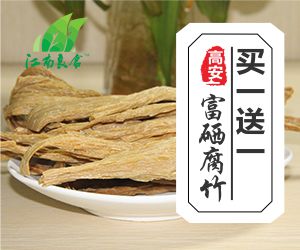PMI releases Integrated Report, demonstrating strong ESG performance and progress toward delivering a smoke-free future
LAUSANNE, Switzerland -- (BUSINESS WIRE) --
Philip Morris International Inc. (PMI) (NYSE: PM) today published its Integrated Report, a comprehensive overview of the company’s environmental, social, and governance (ESG) performance and its progress toward its purpose of delivering a smoke-free future. This includes its 2025 ambitions to have switched more than 40 million adult smokers to its smoke-free products, with half from non-OECD countries, and for smoke-free products to account for more than 50 percent of PMI’s total net revenues. Further accelerating PMI’s transformation, this year the company introduced two new 2025 ambitions, linked to its Business Transformation Metrics: for its smoke-free products to be available in 100 markets and for at least USD 1 billion in annual net revenues to come from “beyond nicotine” products. The Integrated Report also outlines case studies of early indications of PMI’s smoke-free products’ impacts in markets where such products have a meaningful presence.
“I present this report with pride in what we have already achieved in just five years, such as smoke-free products accounting for nearly one-quarter of our total net revenues in 2020, from essentially zero in 2015. I also have a deep recognition of the immense work ahead. Our new ambitious goals signal our confidence in our ability to monumentally change our company’s long-term future,” said Jacek Olczak, Chief Executive Officer. “PMI is committed to serving as an agent of change and advocate of positive values. Innovation and inclusiveness are key to solving our challenges, whether related to tobacco harm reduction, environmental impact, or social impact. We aim to create a sustainable future that benefits our company, shareholders, consumers, and society.”
PMI’s Integrated Report 2020 demonstrates how the organization’s strategy, governance, and performance create value. To showcase impact, the company reports on progress in various ESG areas, including toward achieving its ambitious 2025 Roadmap—a set of forward-looking targets pertaining to all Tier 1 topics from PMI’s sustainability materiality assessment.
The report highlights PMI’s most material sustainability topics, including the health impacts of its products—an aspect often not captured by external ESG assessments—and describes how the company is working toward researching, developing, and commercializing scientifically substantiated better alternatives to continued smoking for those adults who do not quit. It also includes a new section on the company’s business transformation—which extends beyond changing the product—and an update on its Business Transformation Metrics (BTMs).
The company’s BTMs are a set of bespoke key performance indicators (KPIs) introduced in 2016 to complement its ESG disclosure. These metrics allow stakeholders to transparently assess both the pace and scale of PMI’s transformation. Since then, based on stakeholder feedback, PMI has expanded to 28 the number of metrics, with three new metrics introduced in this report.
The report also outlines the company’s firm belief that sustainability strategy is corporate strategy and that ESG issues are business issues. Reflecting this commitment to sustainability, the global sustainability team is now part of the Finance function, reporting directly to the Chief Financial Officer. In addition, executive compensation is now more clearly linked to ESG performance, complementing the strong product transformation incentives already in place.
“Sustainability stands at the core of PMI’s transformation and drives our development of strong ESG programs to mitigate the risks associated with our value chain while spurring innovation and growth to secure our success over the long term,” said Emmanuel Babeau, Chief Financial Officer. “It is our firm belief that sustainability and corporate performance do not follow separate paths, and I am proud that we have spent the last year continuing to strengthen our sustainability governance and ensuring that ESG is integrated into decision-making at all levels of our organization.”
Acknowledging the unique and difficult challenges of the past year, PMI dedicated sections throughout its Integrated Report to showing how it addressed the impacts of the COVID-19 pandemic on its workers, business, and value chain, as well as instances where the pandemic directly affected the company’s sustainability efforts and the adjustments made in response.
“Despite the unprecedented challenges brought on by the global pandemic, we have not deviated from our efforts to show care, support those in our orbit, and continue our quest to become a more sustainable company,” said Jennifer Motles, Chief Sustainability Officer. “As we continue to transform, stakeholder engagement and constructive dialogue remain paramount to this evolution. In 2020, multi-stakeholder partnerships were key to the significant progress we made toward addressing many of our priority sustainability topics, ranging from protecting the health and safety of our employees to safeguarding the human rights of those impacted by our business and accelerating efforts to mitigate our impact on climate change throughout our value chain.”
The report was prepared following the Integrated Reporting <IR> framework and is in accordance with the Global Reporting Initiative (GRI) Standards (core option). It aligns with the principles and standards of the UN Global Compact (UNGC) and indicates contributions to the UN Sustainable Development Goals (SDGs) and corresponding targets. PMI’s Integrated Report addresses some recommendations of the Task Force on Climate-related Financial Disclosures (TCFD), with its environmental reporting to CDP covering most of the remainder.
It also considers guidance from the Sustainability Accounting Standards Board (SASB). Furthermore, for the first time—and as a result of PMI’s business transformation—it cross-references most aspects of the SASB standards defined for Technology & Communications, more concretely the Hardware Standard, and it also describes alignment with some aspects of the standards developed for the healthcare industry, specifically the Medical Equipment and Supplies Standard.
Finally, the content of PMI’s Integrated Report 2020 is mapped against the 21 metrics defined by the International Business Council / World Economic Forum’s “Measuring Stakeholder Capitalism: Towards Common Metrics and Consistent Reporting of Sustainable Value Creation” white paper to further reflect the importance of stakeholders, as per PMI’s Statement of Purpose.
On June 2, PMI will host an ESG-focused webcast during which the company will offer additional insight into how integrating sustainability across its business creates value for its shareholders and stakeholders. PMI will also publish in the coming week an ESG Highlights document, which will provide a more data-focused executive summary of the Integrated Report and will be made available on PMI.com/investor-relations.
Stakeholders can download the full Integrated Report 2020, as well as indexes mapping the company’s disclosures to internationally recognized frameworks, on the newly refreshed PMI.com/sustainability, including details about the company’s 16 Tier 2 sustainability topics.
Progress on PMI’s Business Transformation
– As of December 31, 2020, IQOS was available for sale in 64 markets, and an estimated 12.7 million adult smokers had switched to IQOS and stopped smoking, out of 17.5 million total IQOS users.
– In 2020, PMI invested USD 495 million in R&D expenditures, nearly 100 percent of which was dedicated to smoke-free products.
– PMI’s smoke-free product net revenues accounted for 23.8 percent of total net revenues in 2020, compared with 0.2 percent in 2015.
– PMI’s smoke-free product shipment volume accounted for over 10 percent of total shipment volume in 2020, compared with 0.1 percent in 2015.
Selected ESG Performance Highlights
– In 2020, 48 percent of PMI’s contracted farmers supplying tobacco were earning at least a living income, based on the Anker methodology, which is widely recognized for estimating living income benchmarks worldwide. Despite challenges of the global pandemic, 100 percent of tobacco farmers and farmworkers in PMI’s supply chain were provided with access to personal protective equipment.
– PMI is well on track to achieve its net zero targets of carbon neutrality in its direct operations (scope 1+2) and across its value chain (scope 1+2+3) in 2050. In 2020, it achieved significant absolute CO2e emissions reductions, including a 26 percent reduction in its direct operations (scope 1+2) and an 18 percent reduction across its value chain (scope 1+2+3). These were partially driven by COVID-19-related impacts but were mainly due to accelerated efforts toward our carbon neutrality goals.
– In August 2020, PMI launched its e-vapor product IQOS VEEV—its first electronic device equipped with age-verification technology—in New Zealand. PMI aims to have 100 percent of its smoke-free electronic devices introduced on the market as of 2023 equipped with age-verification technology.
– PMI introduced a new methodology to measure the prevalence of all types of child labor incidents—to gain greater visibility and increase reporting accuracy—as part of its aim for zero child labor in its tobacco supply chain by 2025.
– To strengthen its diligence framework and proactively identify risks and mitigate potential adverse impacts in its operations and value chain, PMI conducted human rights impact assessments in two countries—Mozambique and Russia—in 2020 and is on track to cover its 10 highest-risk markets by 2025.
– In 2020, PMI achieved its target of having 100 percent of its tobacco purchased at no risk of deforestation of old-growth forest, furthering its efforts to protect biodiversity and prevent the destruction of nature.
– PMI received a Triple A Score from CDP for its efforts in combating climate change, protecting forests, and promoting water security, and maintained its position on the A List for Climate Change for the seventh year in a row.
– PMI continued the rollout of its take-back program for smoke-free electronic devices, called CIRCLE, and achieved an 84 percent recycling rate of IQOS devices returned at CIRCLE hubs (percentage of the weight of each device).
– As of December 2020, 37.2 percent of management positions at PMI were held by women, up from 36.1 percent in 2019. Committed to achieving gender balance at all levels, the company is on track to achieve its goal of 40 percent of management positions to be held by women by 2022.
Aspirational targets and goals do not constitute financial projections, and achievement of future results is subject to risks, uncertainties, and inaccurate assumptions, as outlined in the forward-looking and cautionary statements on page 145 of PMI’s Integrated Report 2020. Key terms, definitions, and explanatory notes are set forth in the report. In the Integrated Report 2020 and in related communications, “materiality,” “material,” and similar terms, when used in the context of economic, environmental, and social topics, are defined in the referenced sustainability standards and are not meant to correspond to the concept of materiality under the U.S. securities laws and/or disclosures required by the U.S. Securities and Exchange Commission.
Philip Morris International: Delivering a Smoke-Free Future
Philip Morris International (PMI) is leading a transformation in the tobacco industry to create a smoke-free future and ultimately replace cigarettes with smoke-free products to the benefit of adults who would otherwise continue to smoke, society, the company, and its shareholders. PMI is a leading international tobacco company engaged in the manufacture and sale of cigarettes, as well as smoke-free products, associated electronic devices and accessories, and other nicotine-containing products in markets outside the U.S. In addition, PMI ships versions of its IQOS Platform 1 device and consumables to Altria Group, Inc. for sale under license in the U.S., where these products have received marketing authorizations from the U.S. Food and Drug Administration (FDA) under the premarket tobacco product application (PMTA) pathway; the FDA has also authorized the marketing of a version of IQOS and its consumables as a modified risk tobacco product (MRTP), finding that an exposure modification order for these products is appropriate to promote the public health. PMI is building a future on a new category of smoke-free products that, while not risk-free, are a much better choice than continuing to smoke. Through multidisciplinary capabilities in product development, state-of-the-art facilities, and scientific substantiation, PMI aims to ensure that its smoke-free products meet adult consumer preferences and rigorous regulatory requirements. PMI’s smoke-free product portfolio includes heat-not-burn and nicotine-containing vapor products. As of March 31, 2021, PMI’s smoke-free products are available for sale in 66 markets in key cities or nationwide, and PMI estimates that approximately 14 million adults around the world have already switched to IQOS and stopped smoking. For more information, please visit www.pmi.com and www.pmiscience.com.
# # #
View source version on businesswire.com: https://www.businesswire.com/news/home/20210518005708/en/
CONTACT:
Philip Morris International
Daniella Weinberg
T. +41 (0)58 242 4500
E. daniella.weinberg@pmi.com








